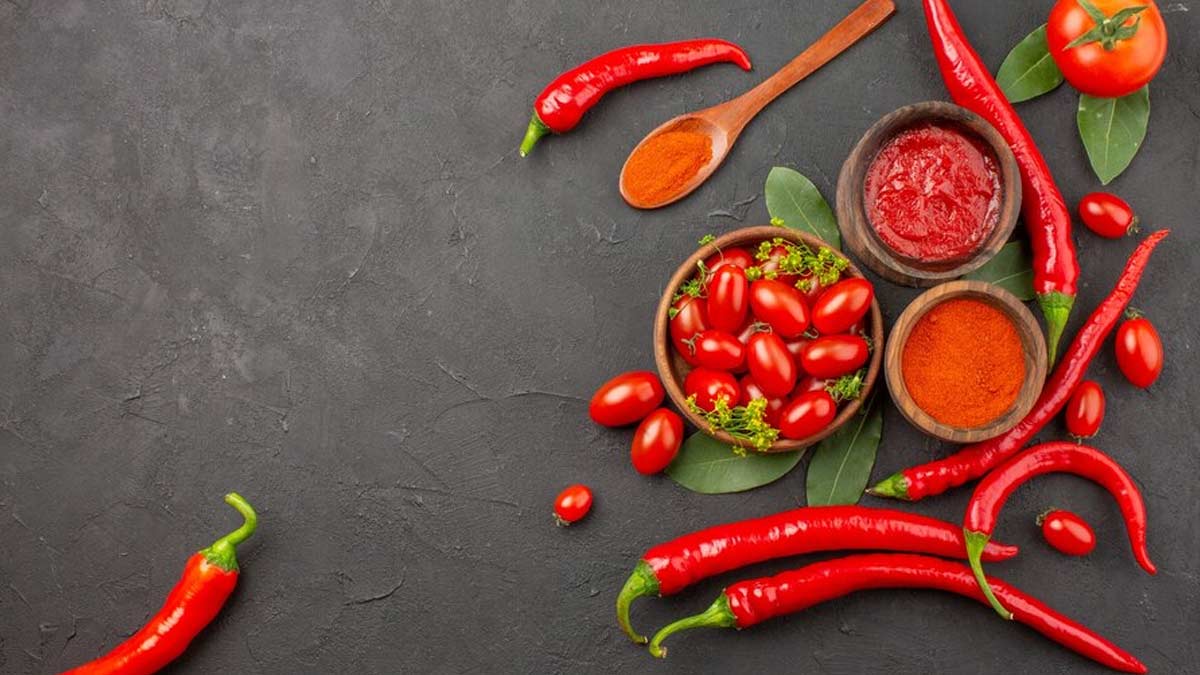
Lovers of fiery food, beware! Excessive red chillies, known for their fiery kick, could be triggering your heartburn. Consuming too much spicy food can irritate your stomach and oesophagus and may cause symptoms, such as stomach pain, nausea, and loose motions. We spoke to our expert Dr Rajesh Chandra, Consultant – Medical Gastroenterologist, Manipal Hospitals, Vijayawada, who explained the impact of spicy food on your digestive health.
Table of Content:-
Impact Of Spicy Food On Acid Reflux

Acid reflux is a health condition characterised by the backward flow of stomach acid into the oesophagus, often resulting in a burning sensation, discomfort, and various associated symptoms.
“Capsaicin, found in chilli peppers, is the compound responsible for its spiciness. It has the potential to irritate the lining of the oesophagus, leading to the familiar burning sensation in the chest commonly referred to as heartburn”, said Dr Chandra.
Studies suggest a link between spicy foods and acid reflux, particularly for those with functional gastrointestinal disorders. A 2017 Korean study even found spicy stews inducing Gastroesophageal Reflux Disease (GERD) symptoms in over half the cases analysed.
Also Read: Decoding Spicy Foods: Expert Lists Its Positive And Negative Effects
How Does Spicy Food Affect Your Health

Spicy Foods Increases Stomach Acid Production
Spicy food can stimulate the release of gastrin, a hormone that navigates the acid production in the stomach. “The irritation caused by capsaicin might trigger the stomach to produce a higher amount of mucus to protect itself. This mucus can sometimes mix with stomach acid, creating the perception of increased acidity”, said Dr Chandra.
You are more likely to experience heartburn after a heavy dinner prepared with an excessive amount of chillies. This is because spicy food has a high acid content, which can irritate the lining of the stomach.
Chilli Peppers May Relax the Lower Esophageal Sphincter
The Lower Esophageal Sphincter (LES) acts like a valve at the bottom of the oesophagus. It keeps the stomach acid down. “Capsaicin can relax this valve in two ways: It might directly interact with the LES muscles, causing them to relax, and the irritation caused by capsaicin in the oesophagus can trigger a reflex that relaxes the LES”, added Dr Chandra.
According to the Multidisciplinary Digital Publishing Institute (MDPI), patients with peptic ulcer disease, functional dyspepsia, and gastroesophageal reflux disease frequently experience burning, pain, and heartburn in their abdomens after consuming chillies.
According to a 2006 review, GERD manifests through symptoms, such as a burning sensation beneath the sternum or the regurgitation of acidic substances, which result from the atypical backflow of stomach contents into the oesophagus.
Also Read: Acid Reflux Burping: Expert Lists Its Causes, Remedies, And Treatment
Delayed Gastric Emptying
“Spicy food with capsaicin can slow down the rate at which the stomach empties its contents into the small intestine. It can interfere with the signals between the stomach and the brain that regulate emptying”, added Dr Chandra.
According to Austin Gastroenterology, capsaicin found in spicy food decelerates digestion, prolonging the duration food remains in the stomach. Consequently, an extended stay of food in the stomach heightens the likelihood of experiencing heartburn.
Bottomline
Dr Chandra concluded, “You should limit your intake of red chilli or remove chilli pepper seeds if you suffer from stomach burn. Also, you can include dairy products in spicy meals, such as milk or yoghurt to help neutralise capsaicin’s effects. If you experience persistent heartburn after consuming spicy food, consult a healthcare professional.”
[Disclaimer: This article contains information provided by an expert and is for informational purposes only. Hence, we advise you to consult your expert if you are dealing with any digestive issues to get the necessary treatment.]
Also watch this video
How we keep this article up to date:
We work with experts and keep a close eye on the latest in health and wellness. Whenever there is a new research or helpful information, we update our articles with accurate and useful advice.
Current Version